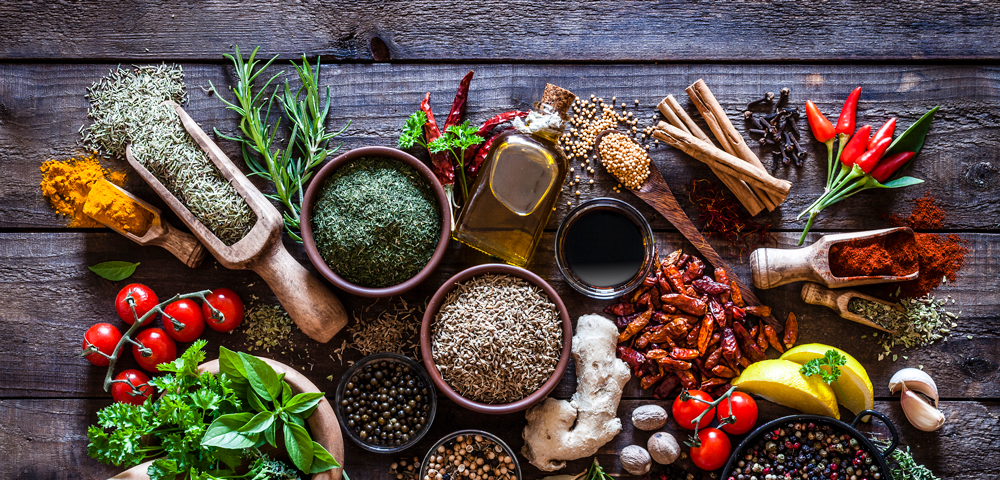Spice up mealtime with a side of heart-healthy benefits
February marks National Heart Month, making it a great opportunity to explore some tasty ideas for lowering your blood pressure.
Cardiometabolic diseases like heart disease, strokes and type two diabetes continue to be one of the leading causes of death in the United States. By monitoring and improving blood pressure, health professionals aim to upgrade heart health in an effort to mitigate those conditions.
An easy way to adjust your blood pressure is to limit your sodium intake by adding less salt to your meals. Seasoning food with herbs and spices to boost flavor rather than adding sodium has always been a go-to method of reducing blood pressure. But until now, less research existed about whether the herbs and spices themselves have additional healthy-heart perks.
In a controlled-feeding study recently published in the American Journal of Clinical Nutrition, researchers at Penn State University found that seasoning foods with about 1.3 teaspoons of spices and herbs every day was linked with lower blood pressure over four weeks.
For the study, researchers Penny Kris-Etherton and Kristina Petersen recruited 71 people with risk factors for heart disease. Every participant consumed every spice diet – one low, one moderate and one high in herbs and spices – in a random order for four weeks each, with a two-week break between each diet period. Blood samples were drawn from each participant at the beginning of the study as well as after each diet period.
All three diets were based on an average American diet – reflective of what a typical American consumes in a day – but with three different doses of spices and herbs added. The low-dose, medium-dose and high-dose diets included about 0.5 grams, 3.2 grams, and 6.5 grams of herbs and spices, respectively, per day.
The doses included a blend of 24 spices and herbs, ranging from thyme and cinnamon to turmeric and basil, designed to mimic the way people use different seasonings while cooking throughout the day.
The research found that after consuming the diet including a high dose of herbs and spices, participants had lower systolic blood pressure than after the diet with the medium dose. Participants also had lower diastolic blood pressure after the diet with a high dose of herbs and spices than after the diet with a low dose.
Kris-Etherton said the results were especially compelling to her because the diets in the study were not specifically designed to be heart healthy, and only differed from an average diet by the amount of spices and herbs added.
The researchers said that additional studies designed to incorporate spices and herbs into healthy meals lower in salt, added sugars and solid fats could help guide future dietary recommendations.
In honor of National Heart Month, we encourage you to spice up your palette while contributing to your heart health by adding some beneficial herbs to your meals. You’ll help to bring down your blood pressure — and you may even discover an exciting new flavor to add to your mealtime rotation.
Envisage is a members-only program that works in tandem with your financial plan. Interested in learning more about how we complement our members healthy lifestyles? Click HERE to learn about our WELL program!




